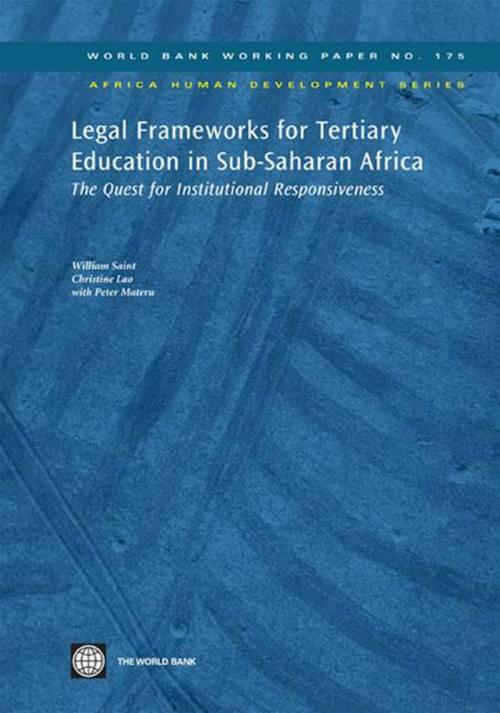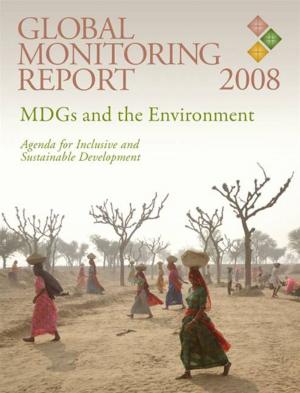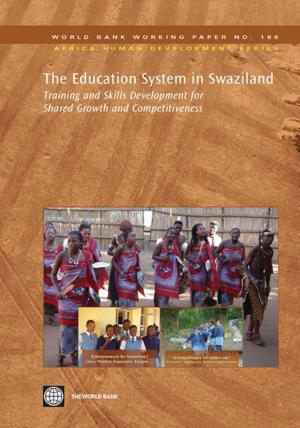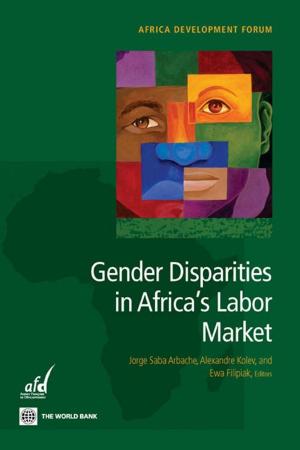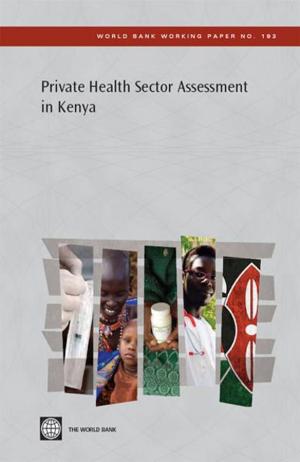Legal Frameworks For Tertiary Education In Sub-Saharan Africa: The Quest For Institutional Responsiveness
Nonfiction, Reference & Language, Education & Teaching, Higher Education| Author: | Saint William; Lao Chritine | ISBN: | 9780821381243 |
| Publisher: | World Bank | Publication: | October 19, 2009 |
| Imprint: | Language: | English |
| Author: | Saint William; Lao Chritine |
| ISBN: | 9780821381243 |
| Publisher: | World Bank |
| Publication: | October 19, 2009 |
| Imprint: | |
| Language: | English |
The performance of tertiary institutions is heavily influenced by their governance arrangements, management structures, accountability mechanisms, and the regulatory environments in which they operate. Institutional performance can be enhanced or diminished by the legal frameworks that condition institutional capabilities to respond, adapt and maintain flexibility in the face of change. This study analyzes the prevailing legal frameworks for university system governance, management, and accountability in Sub-Saharan Africa. It is based on a review of 70 legal documents from 24 African countries. For governance, the research looks at the size and composition of university governing boards, member appointment procedures, selection of the board chair, frequency of meetings, and terms of service. For management, it examines financial autonomy, budget approval authority, staff hiring and terms of service, and appointment procedures for senior officers. For accountability, it considers stakeholder representation in governing bodies, financial auditing requirements, academic auditing obligations, performance reporting, and performance-based funding. Overall, the study finds continent-wide tendencies to increase institutional autonomy, to strengthen accountability mechanisms, to shift from appointment to elective representation in the filling of higher governance and management positions, to favor merit over political affiliation in the criteria for choosing senior officers, and to expand university linkages with civil society, the private sector, and sister institutions in the region and beyond. The expansion of tertiary system buffer bodies and growing regulatory attention to private higher education are particularly notable phenomena.
The performance of tertiary institutions is heavily influenced by their governance arrangements, management structures, accountability mechanisms, and the regulatory environments in which they operate. Institutional performance can be enhanced or diminished by the legal frameworks that condition institutional capabilities to respond, adapt and maintain flexibility in the face of change. This study analyzes the prevailing legal frameworks for university system governance, management, and accountability in Sub-Saharan Africa. It is based on a review of 70 legal documents from 24 African countries. For governance, the research looks at the size and composition of university governing boards, member appointment procedures, selection of the board chair, frequency of meetings, and terms of service. For management, it examines financial autonomy, budget approval authority, staff hiring and terms of service, and appointment procedures for senior officers. For accountability, it considers stakeholder representation in governing bodies, financial auditing requirements, academic auditing obligations, performance reporting, and performance-based funding. Overall, the study finds continent-wide tendencies to increase institutional autonomy, to strengthen accountability mechanisms, to shift from appointment to elective representation in the filling of higher governance and management positions, to favor merit over political affiliation in the criteria for choosing senior officers, and to expand university linkages with civil society, the private sector, and sister institutions in the region and beyond. The expansion of tertiary system buffer bodies and growing regulatory attention to private higher education are particularly notable phenomena.
